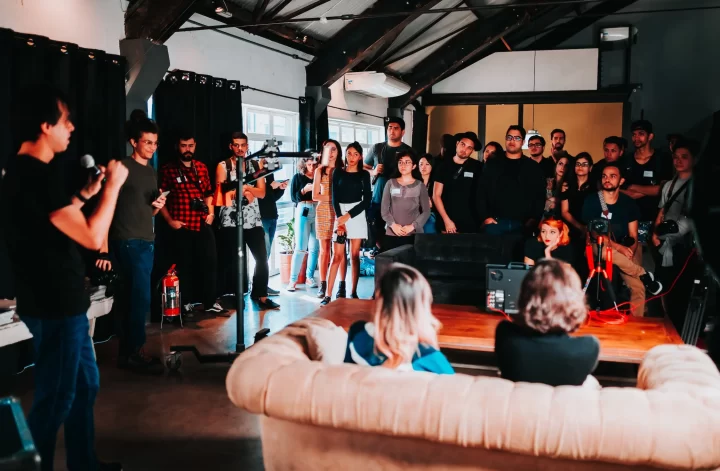The song “Video Killed The Radio Star” has become a much-loved (and much-covered) pop classic. On current evidence, however, the prediction was totally wrong. Now the radio stars are in podcasting and the video stars are all over social media. Both groups are doing well but which one should you join? Here are some points to consider.
You get more choice of platforms with video
It used to be that YouTube was the only place on the internet that hosted user-generated video content. YouTube is currently well in the lead when it comes to longer-form video content. It is, however, rather ironically, in what is essentially a three-way battle for short-form video content. Its main competitors here are Tiktok and Instagram.
Facebook, Pinterest, Twitter and LinkedIn also support video. As yet, none of them looks to be a serious contender to YouTube, Tiktok or Instagram. LinkedIn is unlikely ever to become so as it has a very specific demographic. With that said, video on LinkedIn has become increasingly important and should almost certainly be part of your strategy if your goal is to grow on that platform.
It’s easier to stay off-camera with podcasting
For some people, especially writers (e.g. bloggers) looking to branch out, having to be on camera is a huge stumbling block. If that sounds like you then podcasting may be the way to go. There is, however, a bit of nuance here. You may want to consider podcasting via YouTube and using an image “placeholder” instead of actual video content.
This may sound like a contradiction in terms but there are two good reasons for it. Firstly, it gives you access to YouTube’s monetization options. Secondly, it gives you access to YouTube’s user community. This can really boost your chances of being discovered, especially in the early stages.
Audio content can work very well on YouTube, in fact it’s become home to a lot of channels that are effectively podcasts. Most of these, however, do use video. They just don’t worry too much about their video production standards. The typical setup is pretty similar to “talking-heads shows” on TV.
Similarly, there are some non-podcast video channels where the presenters stay off-camera. Again, these are fairly rare and unlikely to grow as huge as some of the most successful regular channels. With that said, the option is definitely there.
Video can boost your SEO
At present, the way search engine optimization works tends to favour video content over podcasting. There are a couple of reasons for this. Firstly, video content tends to be very mobile-friendly and the search engines rate mobile-friendliness very highly. Secondly, video tends to encourage user engagement and this is huge for search engines.
Part of the reason why video is so good for engagement is that video-focused sites make it easy for users to engage with it. They can like it, leave comments and share it with their friends. Audio-focussed sites still have a lot of catching up to do here.
Secondly, video gives the viewer a visual link with the presenter as well as an audio one. This can really help to build a connection. That’s another reason why a lot of podcasters use YouTube.




